
Spring has sprung which means one thing ; Summer is almost here. So it's time to start thinking about tanning. In this article we're going to give you the low down on self tan – so unless you're going to a fancy dress party there'll no excuse for looking like an Oompa Loompa this year!
Fake it!
No one is denying that the sun has its benefits, for one it's essential for the production of Vitamin D. UV radiation can provide relief from rickets, psoriasis, eczema and jaundice.
But unless you've been living under a rock (in which case you will be in dire need of some fake tan) you'll know that prolonged exposure to UV rays is harmful. Whether you catch these rays au natural outdoors or using a sunbed; it doesn't make a difference – UV rays are bad for us. You don't need another lecture on the risks of skin cancers (melanoma and non-melanoma). You probably don't need to hear again about 'lesser' effects; wrinkles, skin spots, leathered/weathered skin, skin dryness, sagging, loss of elasticity, mottled pigmentation...
How does fake tan work?
Instead of telling us to just embrace a life untanned, the clever scientists who warned us of the dangers of UV tanning came up with a safe alternative. Dihydroxyacetone. Or DHA as it's affectionately known. DHA is the main ingredient in all fake tan products, it's the chemical that produces the tan. Now here's the science bit, concentrate:
DHA is essentially a simple sugar. When applied it reacts with the amino acids in our skin, resulting in a change in pigmentation. You know how a slice apple turns brown when exposed to air? It's the same principle.
Fake tans generally take 8 – 24 hours to develop in colour, and fade in 3-10 days as your skin naturally replenishes itself.
So is fake tan safe?
DHA has been FDA approved in the USA since the 70s and there is no known toxicity through contact with skin. It is recommended that if your fake tan is applied by a spray, that both the sprayer and the sprayee wear masks to prevent inhalation.
DHA is considered safe for pregnant women, but it is recommended that breastfeeding women do not apply it to the breasts.
What's the difference between the self tan choices?
Firstly we can split fake tan in to two types – Gradual Tan and Self Tan.
Gradual Tan
Gradual tans are usually a moisturising lotion that is applied daily to build up a light to medium tan. A gradual tan is a a good choice for those who want a less dramatic change, or for those nervous about giving fake tan a go.
Self Tan
A Self Tan is applied as a medium to full shade that will last for 2 – 10 days after the development time. Different ways of applying this kind of tan include;
- Spray – A fine mist of self tan is sprayed over your body. A spraying distance of 30cm is recommended so you might need to recruit a helper or go to a salon. The benefits are that you can reach all the difficult areas with a spray and it is considered faster than other tans (both to apply and to dry). It's not recommended that you use a spray tan on your face.
- Cream / Lotion – These are applied by hand (or a tanning mitt) and are rubbed in to the skin. These are a good choice for dry skin as they are generally more hydrating.
- Mousse – Like lotions a tan mousse is applied by hand. They are less prone to streaking as they do not contain oxygen. Mousses are great for normal and oily skin.
How do I prepare to self tan?
Preparation is the key to a successful fake tan. In just two steps you can ensure the best base for you're glowing summer skin.
- Exfoliate. Exfoliate. Exfoliate. Tans do not adhere well to dry or flaky skin. Exfoliate using a good body scrub (a gentle one if you're tanning your face!) or an exfoliating brush or mitt. Use small, circular motions and pay particular attention to your elbows, knees and feet.
- Moisturise the night before, it will help for an even application. If you moisturise immediately prior to applying fake tan, the product can slide. A crew favourite body lotion is the Lipikar AP+M Body Balm, a lipid-replenishing body cream that is formulated to reduce dryness, restore hydration and comfort to dry or very dry skin. It's enriched with prebiotic Aqua Posae Filiformis and Microresyl to help rebalance the skin's Microbiome as well as Shea Butter and Niacinamide to replenish the skins protective barrier.

- If you're going to wax / epilate your body hair, do so a couple of days before you tan, to prevent the tan seeping in to the open pores.
How do I apply fake tan?
Always follow the manufacturer’s directions for use to ensure your desired result. Here's some tips to make your self tanning session a successful one:
- Water is any fake tan's enemy. Ensure your skin is completely dry, and if you're tanning at home that your bathroom is completely free from steam.
- Avoid using deodorant before a fake tan to prevent staining rings.
- When tanning the face apply petroleum jelly to the hairline and eyebrows. This will prevent the product from bleeding in to the hair. You can also use petroleum jelly to protect your nails and cuticles.
- Tanning mitts are designed to evenly distribute the product. If you don't have a tanning mitt consider using latex gloves to prevent the product from tanning the palms of your hands.
- Hands, elbows, feet and knees are the hardest places to tan. There are two good ways to achieve an even tan in these areas;
- Use a damp cloth to remove any excess product from the area and blend using (gloved) fingers.
- Try using a cosmetic brush or sponge to lightly apply product to these areas. Leave to dry for 10mins and then apply a generous amount of body lotion. Remove any residue with a damp cloth.
- Allow the tan to dry before dressing in loose clothing. You can use a hair dryer to speed up the drying process.
- Always leave the product for the AT LEAST the stated development time before showering. The longer the better is a good rule of thumb.
How do I look after my tan?
To prevent your tan looking blotchy as the skin dries out you can apply a moisturiser twice daily. Chlorinated swimming pools and hot tubs can drastically reduce the longevity of a fake tan.
Why does the same product that makes my friend look amazing, make me look like an Oompa Loompa?
What colour you turn really depends on what your own individual genetics dictate. Like individual skin colours, each person's skin will react with a self tan product differently, and what turns your friend a gorgeous natual caramel colour, may well turn you into a walking tangerine! So experiment until you find a product you like. Then stock pile it incase of a Zombie apocalypse.
Oompa, Loompa, doom-pa-dee-dee...
There's no instant fix if you make a boo boo while self tanning but here's a few things you can try at home if it all goes a bit wrong:
- As soon as you notice your tan has gone wrong jump in to a warm shower. Exfoliate using a loofah or a good body scrub. A coarse sugar mixed with olive oil is an easy scrub to make at home.
- Wipe your skin with lemon juice, leave it on for a minute and then wash it off. Lemon juice is particularly useful for removing excess product from around your nails.
- Baking soda mixed with lemon juice to form a paste works as an exfoliant.
It is possible to buy tan removers if you're not brave enough to show your orange self in public. However you remove a tan be sure to be extra kind to your skin afterwards – moisturise several times daily.
Some people will tell you to use bleach (hydrogen peroxide) or nail polish remover to erase a fake tan. This is not recommended as they will be extremely harsh on your skin and might even cause a reaction.
Watch outs!
Remember! Like your skin colours when it comes into contact with self tan, so will any other porous surface, like tiles, clothes, carpet, the cat..... So, as a general rule of thumb, we wouldn't recommend applying it standing in the middle of your cream carpet! You get it?
Most importantly...
Whatever self tan choice you make this summer, remember it is just like applying a foundation, it gives you no protection from the sun so ALWAYS use a suitable sunscreen.
So there we have it, your guide to fake tan. Will you be reaching for the fake tan this summer? Or perhaps you are a self-proclaimed self tan expert with more tips to share. Tell us your thoughts on all things fake tan below!



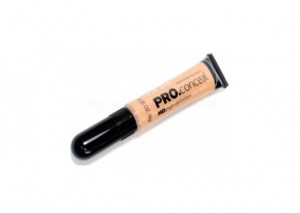


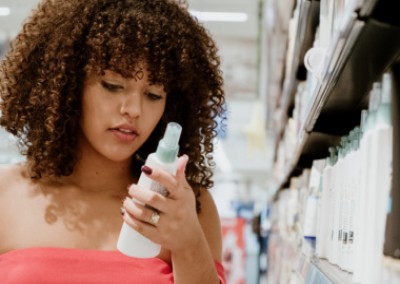

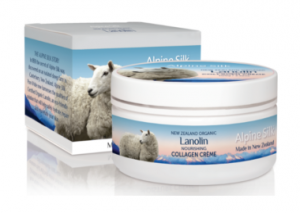
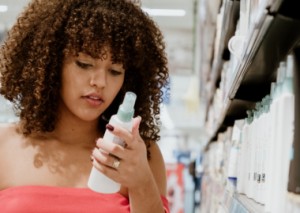
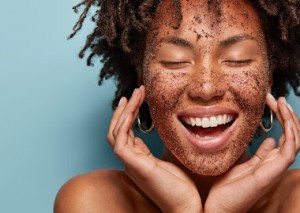

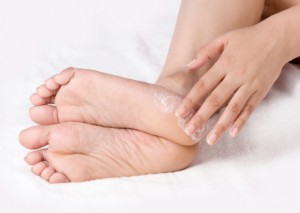
I really recommend latex gloves because they don’t absorb any product or leave streaks :)